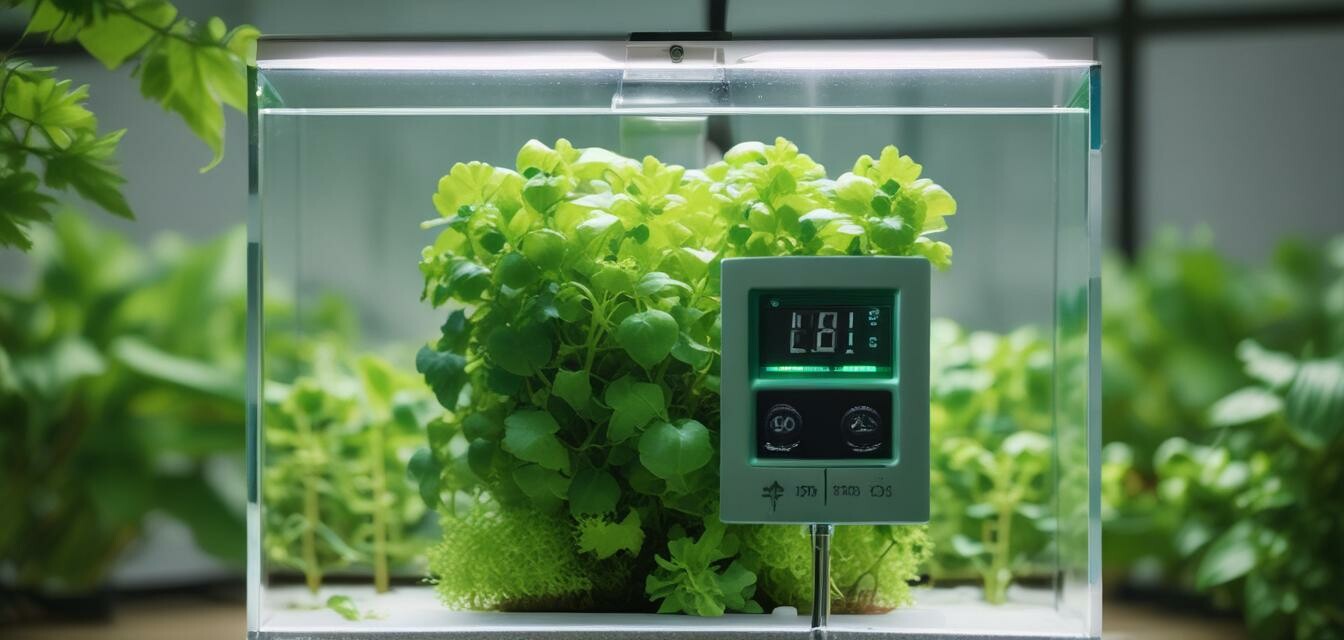
Selecting the right pH meter for your hydroponic setup
Key takeaways
- Choose a pH meter with dual functionality for convenience.
- Look for models with a fast response time for accurate results.
- Consider the ease of calibration and maintenance to prolong the meter's lifespan.
- Check for waterproofing features to suit the hydroponic environment.
- Assess the display for readability, especially in low-light conditions.
When it comes to hydroponic gardening, maintaining optimal pH levels is crucial for the health of your plants. A reliable pH meter ensures that the nutrient solution remains within the desired acidity levels, promoting better nutrient absorption. In this guide, we’ll explore how to select the best pH meter for your hydroponic setup, detailing important features to consider, and user recommendations to help you make an informed decision.
Understanding the importance of pH in hydroponics
The pH of your nutrient solution affects the plant's ability to absorb nutrients effectively. In hydroponics, the ideal pH range is typically between 5.5 and 6.5. Failure to monitor and adjust pH levels can lead to nutrient lockout, stunted growth, and ultimately the failure of your gardening efforts.
Key features to look for in a pH meter
When visiting the market for a pH meter, consider the following features:
| Feature | Description |
|---|---|
| Accuracy | Look for meters offering ±0.1 pH accuracy for precise measurements. |
| Calibration | Choose meters that easily calibrate to ensure long-term accuracy. |
| Display | Digital meters with large, clear displays are easiest to read. |
| Durability | Ensure the meter is sturdy and preferably waterproof. Hydroponics can be a messy endeavor. |
| Portability | A compact design allows easy transport and convenient storage. |
Types of pH meters
There are two main types of pH meters you can consider for your hydroponic garden:
- Handheld pH meters: Ideal for quick, field testing of multiple areas.
- Laboratory-grade meters: Best for precise measurements in stationary setups.
How to choose the right pH meter
Here are some guidelines to help streamline your choice:
- Identify your needs: Are you using it for personal gardening or larger operations?
- Set a budget: A baseline investment typically yields sufficient accuracy.
- Read reviews: Customer feedback can give insights into real-world performance.
- Consider brands: Trustworthy brands often provide better customer support and warranty options.
- Buy from reputable retailers: Ensure you are purchasing from recognized sources to avoid counterfeit products.
Maintenance tips for your pH meter
Proper maintenance extends the life of your pH meter and ensures accurate readings:
Tips for beginners
- Store the pH meter in a safe environment away from extreme temperatures.
- Calibrate your meter regularly (at least once a month).
- Clean the electrode with distilled water after each use.
- Replace the electrode per the manufacturer's guidelines.
Common brands to consider
While we won't recommend specific products, popular brands in the pH meter market include:
- Brand A: Known for affordable options.
- Brand B: Offers models with advanced features.
- Brand C: Focuses on laboratory-grade accuracy.
Conclusion
Selecting the right pH meter for your hydroponic setup is vital in ensuring that your plants grow in a suitable environment. With careful consideration of the features, types, and maintenance practices outlined above, you’ll be equipped to make an informed choice. As you venture into hydroponic gardening, remember that consistent monitoring of pH levels can lead to healthier, more productive plants.
Pros
- Improved plant health through accurate pH monitoring.
- Ease of use for both beginners and experienced gardeners.
- Variety of options available for different needs.
Cons
- Initial investment can be higher than other garden tools.
- Calibration may require additional effort and time.
- Some models are less durable in humid environments.
For further reading on hydroponic systems and related products, check out our comprehensive buying guides, and explore our resources on monitoring and sensors as well as nutrient solutions to complement your pH meter for optimal growth.

